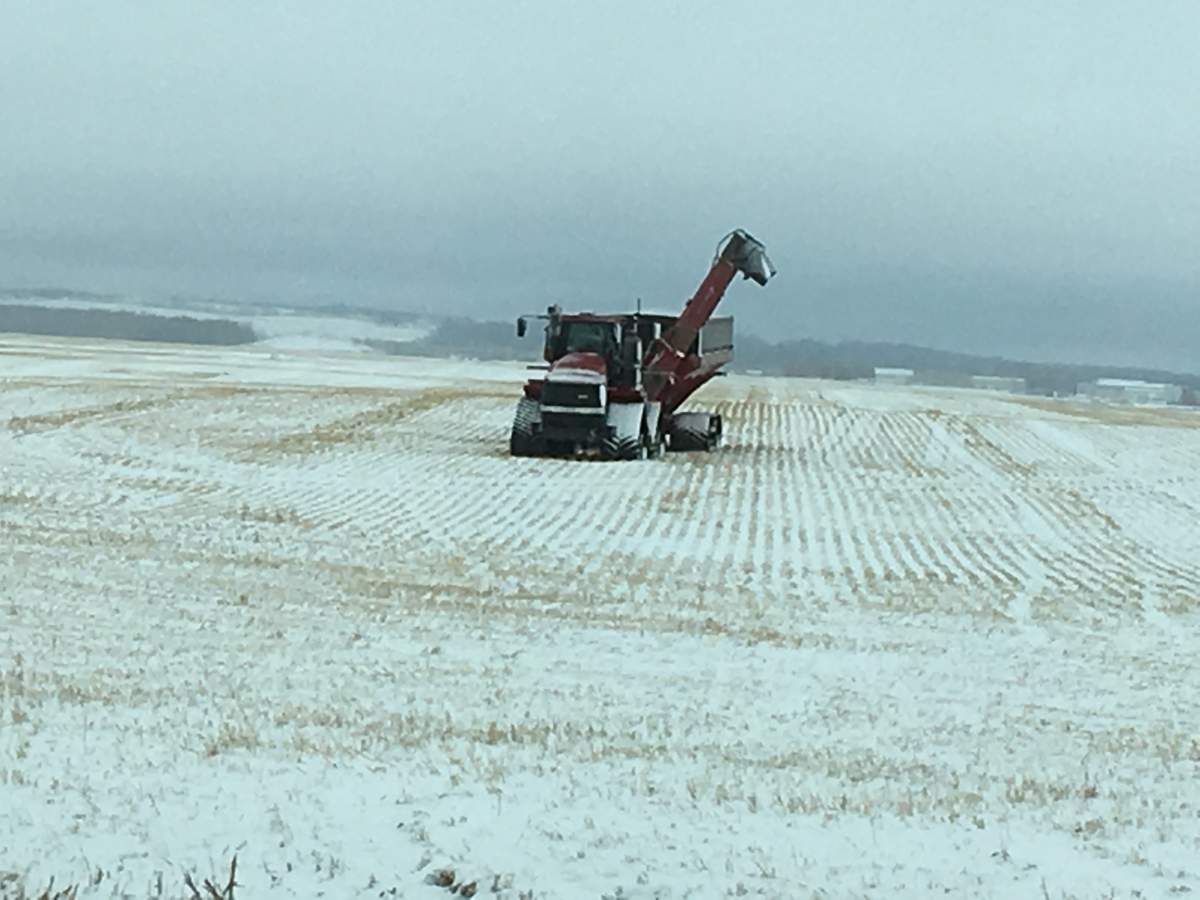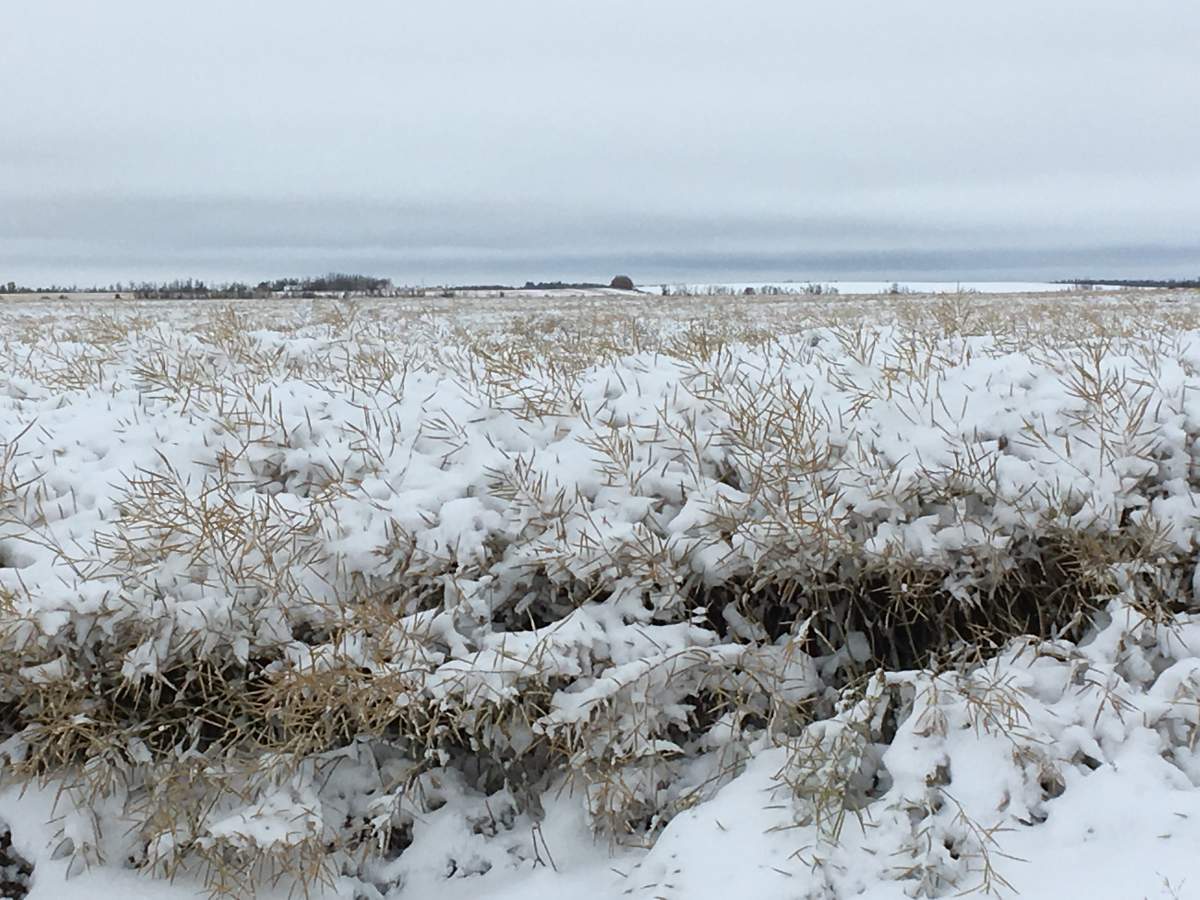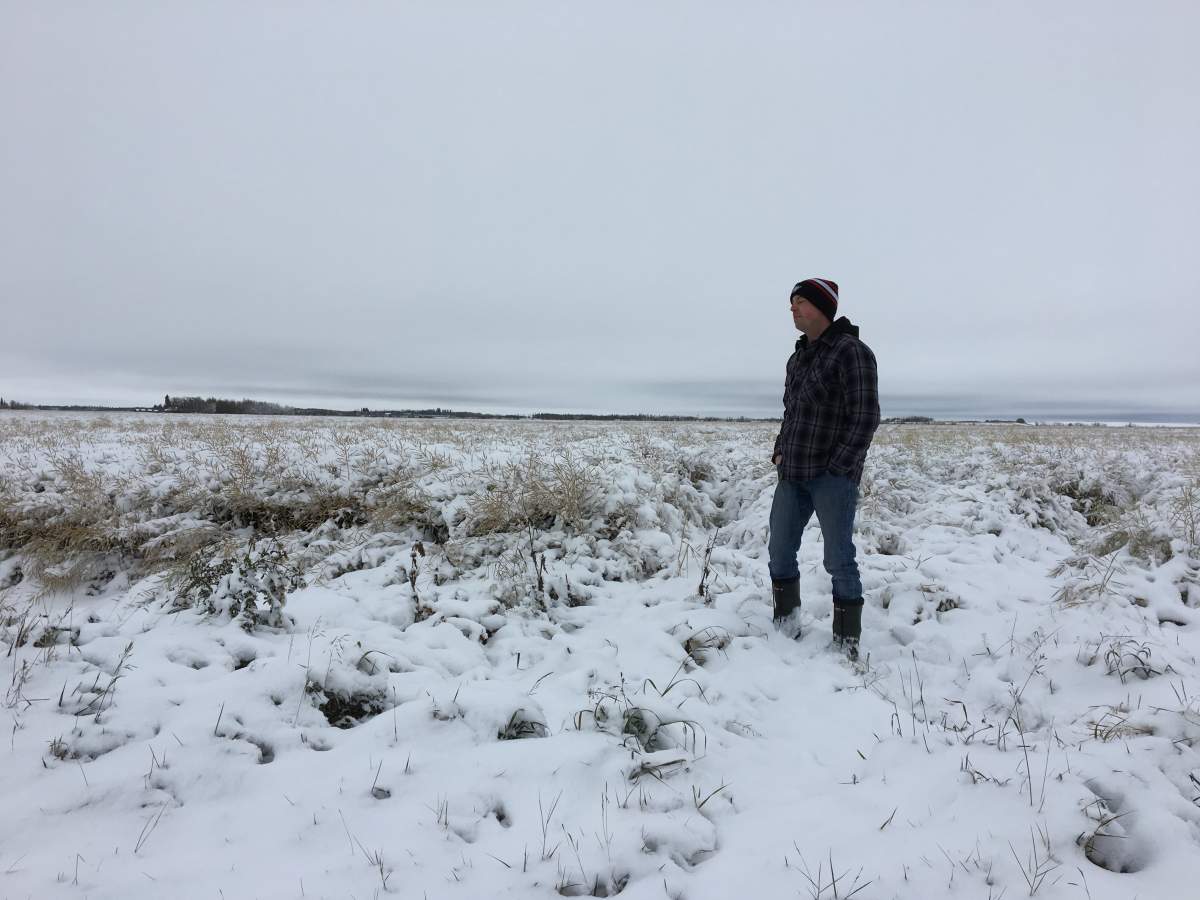It’s already been a tough harvest for farmers across Alberta, with cold, wet fall weather bringing work to a halt in many areas over the past few weeks. Waking up to another fresh blanket of snow on Monday morning only made matters worse.

“It’s depressing. It’s stressful. There’s a lot of work left to do and it’s not going to be fun trying to do it. The days are short, the weather is cold and we should be done by now,” frustrated farmer Craig Mills said on Monday.
Mills farms about 2,500 acres near Westlock, Alta. and on Monday morning his canola field was under at least 10 centimetres of snow. With about 800 acres of crop still on the field, he’s worried he won’t get it all off and even if he does, there are further concerns about the quality of the product.
“Quality is really poor already,” he explained. “Almost everything has had a major quality drop.
“There’s definitely a chance that we won’t finish. We’re all trying to be optimistic that we will but it’s becoming more of a realistic probability.”
The same feelings are shared by farmers across the region. Fellow Westlock County farmer John Guelly managed to take advantage of a seven-day window to finally finish his harvest on Saturday, but he’s almost ashamed to say so.
Watch: Alberta farmers are facing thousands of dollars in additional costs at a time they should be rewarded for their hard work. Tom Vernon has more on the toll this horrid harvest is taking.

“It’s another one of those years where you go to town and people ask you how harvest is going and you kind of turn your head and say, ‘Well, I’m finished’ because you’re almost embarrassed to say it because you know everybody else is still out there struggling and battling,” Guelly said.

Get breaking National news
“It’s nice to be done but you certainly understand how everybody else is feeling.”
LISTEN BELOW: Farmer Graham Jespersen speaks with 630 CHED’s Ryan Jespersen
It’s a disappointing end to what Guelly thought earlier this year might be a promising season. A stretch of hot, dry weather in the spring allowed seeding to proceed smoothly. Hot weather and timely rain followed. At the start of August, things were looking good, he said.
Watch below: An early burst of winter weather is having a big impact on Alberta’s multi-billion dollar agriculture sector. Tom Vernon reports. (Filed Sept. 14, 2018).

But things took a turn in late August, when smoke from the B.C. wildfires delayed crop maturity.
“If the crops were ready to go, we’d certainly have a lot more off the fields right now,” Guelly said of farmers in the area.
Since the end of August, crop quality has started to deteriorate across Alberta due to the wet conditions and is expected to decline further, according to the Alberta Crop Report. The cold, wet weather has halted harvest operations in many areas of the province.
As of Oct. 2, about 40 per cent of the crops have been harvested in Alberta, 24 per cent are in the swath and 36 per cent still remain standing.
When compared to the five-year average between 2013 and 2017, Alberta’s harvest progress is 40 per cent behind.
“The fun of farming is starting to disappear,” Guelly said. “It’s really frustrating and we had another roller-coaster year this year.
“We always talk about farmers have to be patient, but I think the patience is wearing really thin right now.”
The sentiment is echoed by Mills, who is just hoping for sun, wind and dry days ahead.
“It’s at least 10 days of slow, painful harvesting ahead of us. We can’t do anything until it gets nice again,” he said.








Comments